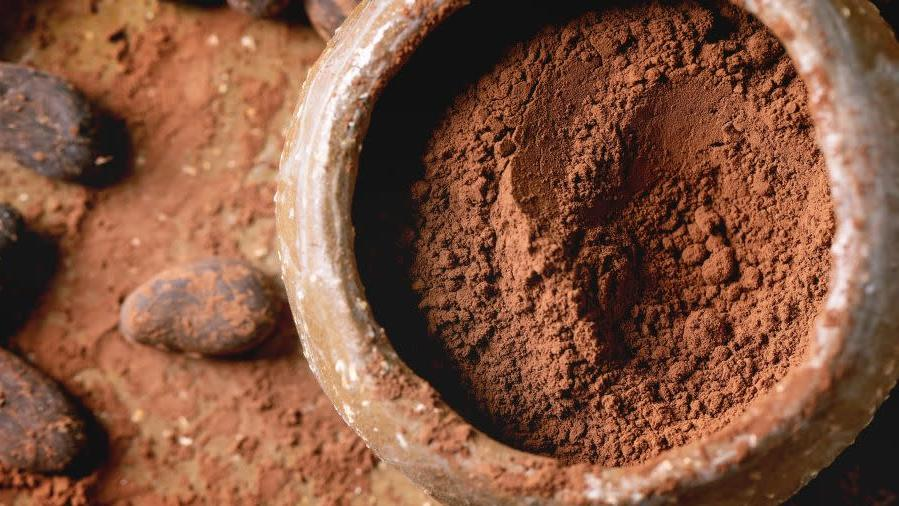What's The Difference Between Cocoa Powder And Dutch Cocoa Powder?
Got a cooking question? Email us at hello@thetakeout.com.
I've seen recipes that have called for cocoa powder, natural cocoa powder, Dutch-processed cocoa powder, alkalized cocoa powder – are all of these the same thing? Because there's only maybe two cocoa powders they sell at the store. Can I use whatever cocoa I can find, or will that mess up what I'm baking?
To answer your questions quickly and backwards:
1. No, cocoa powders are not interchangeable, and yes, using the wrong kind will mess up your baking.
2. Many supermarkets will only carry two different brands because, well, there's really only two different types of cocoa powder: natural and alkalized.
3. All the cocoa powders you mentioned are one of those two types, but with different names to make things confusing. Once you cut through those ambiguities, though, it's not confusing at all. (I won't say that these confusing naming conventions are a trick to make certain kinds more expensive, because if you know anything about the chocolate industry, you know that cocoa powder should probably cost $10,000 per pound. But I digress!)
Natural cocoa powder—also known as regular ol' cocoa powder—is made by grinding dried cacao beans into a powder, and that's all. Because it's not processed any further it tastes just like the beans do: bitter, acidic, and rather unpleasant. If you need cocoa powder for rolling truffles, whipping cream, or dusting over a dessert, do not use regular cocoa powder. It will make your food taste like garbage, and worse, it will make you feel like you were betrayed by chocolate.
Natural cocoa powders are for cooking only, where it can work with other ingredients to make good things happen. In baking, cocoa powder is often used in conjunction with baking soda to produce a chemical reaction that neutralizes the unpalatable acidity. To balance the bitter, there's sugar. To test if the cocoa powder you have is natural, taste it. You'll know.
Alkalized cocoa powder—aka Dutch process cocoa powder—is, you guessed it, processed with alkali. Why the fancy name? Because it was a Dutch guy who discovered that if you soaked cocoa beans in an alkali potassium carbonate solution before grinding them up, the finished product would taste rich and chocolatey with barely a trace of acidity. In fact, Coenraad Johannes van Houten and his father, Casparus, are essentially responsible for modern chocolate as we know it. If I made a world-changing chocolate discovery and didn't get my full name slapped on it, I'd be pissed.
Treating the cocoa beans with alkali before processing changes the color of the finished powder, making it darker and more vibrant than pale-brown natural cocoa powder. Dutch cocoa powder looks and tastes like the chocolate you're familiar with, which makes it good for raw applications, or in things like puddings, sauces, and ice creams.
If you're not sure which cocoa powder you're dealing with when you go to the supermarket, don't look at the front of the label—look at the back. Under ingredients, if it says "processed with alkali," you have a non-acidic "Dutched" cocoa. If not, it's natural, acidic cocoa. Refer to your recipe and make your purchase accordingly.
